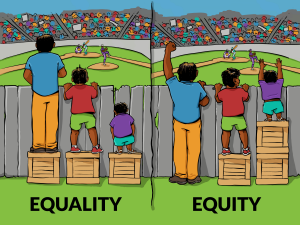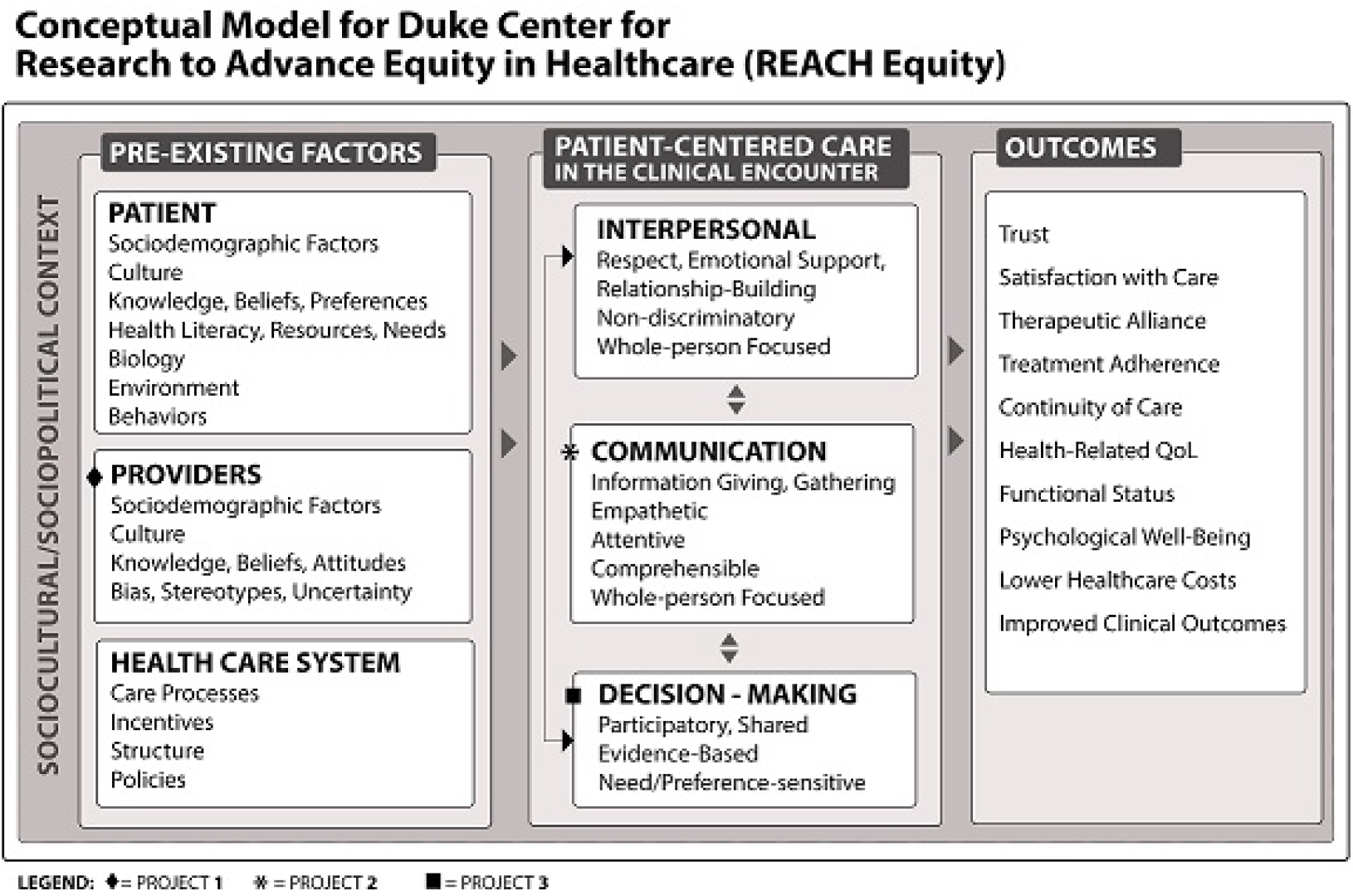Theme
The theme of Duke Center for Research to Advance Healthcare Equity is to develop and test interventions that reduce racial and ethnic disparities in health by improving the quality of patient-centered care in the clinical encounter across settings, diagnoses, stages of illness, and throughout the life course.

Our logo and this graphic illustrate the difference between equity and equality, which applies to the work we do. Equality means everyone has the opportunity to attend a sports game, but their experience may differ based on personal characteristics. In the graphic, the characteristic is height.

REACH Equity Center focuses on race and ethnicity—personal characteristics that often lead to inequitable clinical care and outcomes. Equity means that not only does everyone have the opportunity to attend the game, but everyone has the best possible experience. REACH Equity will develop and test interventions that promote equitable health outcomes.
Background
Racial and ethnic health disparities are ubiquitous, lead to excess morbidity and mortality, and are associated with substantial healthcare costs. These disparities are present even among those with similar access to care, suggesting that providers and health systems are important contributors to health disparities.
Yet most studies of interventions to reduce disparities have focused on changing patient behavior and knowledge, leaving substantial gaps in the evidence base of effective interventions to reduce disparities in healthcare delivery.
REACH Equity seeks to address gaps in current disparities research by focusing on the quality of healthcare delivery in the clinical encounter—a setting where racial and ethnic disparities in care are well-documented.

REACH Equity Aims
- Create an umbrella for the integration of transdisciplinary health disparities research that extends across the campus.
- Catalyze and support a program of research related to the Center's theme.
- Develop the next generation of health disparities investigators through a research education and training pipeline program.
- Diversify the health disparities research workforce by identifying, mentoring, and developing URM investigators.
- Develop reciprocal partnerships, which facilitate community and stakeholder engagement in the Center.
Funding: REACH Equity is supported by the National Institute on Minority Health and Health Disparities (NIMHD) of the National Institutes of Health under Award Number U54MD012530. The content is solely the responsibility of the authors and does not necessarily represent the official views of the National Institutes of Health.
